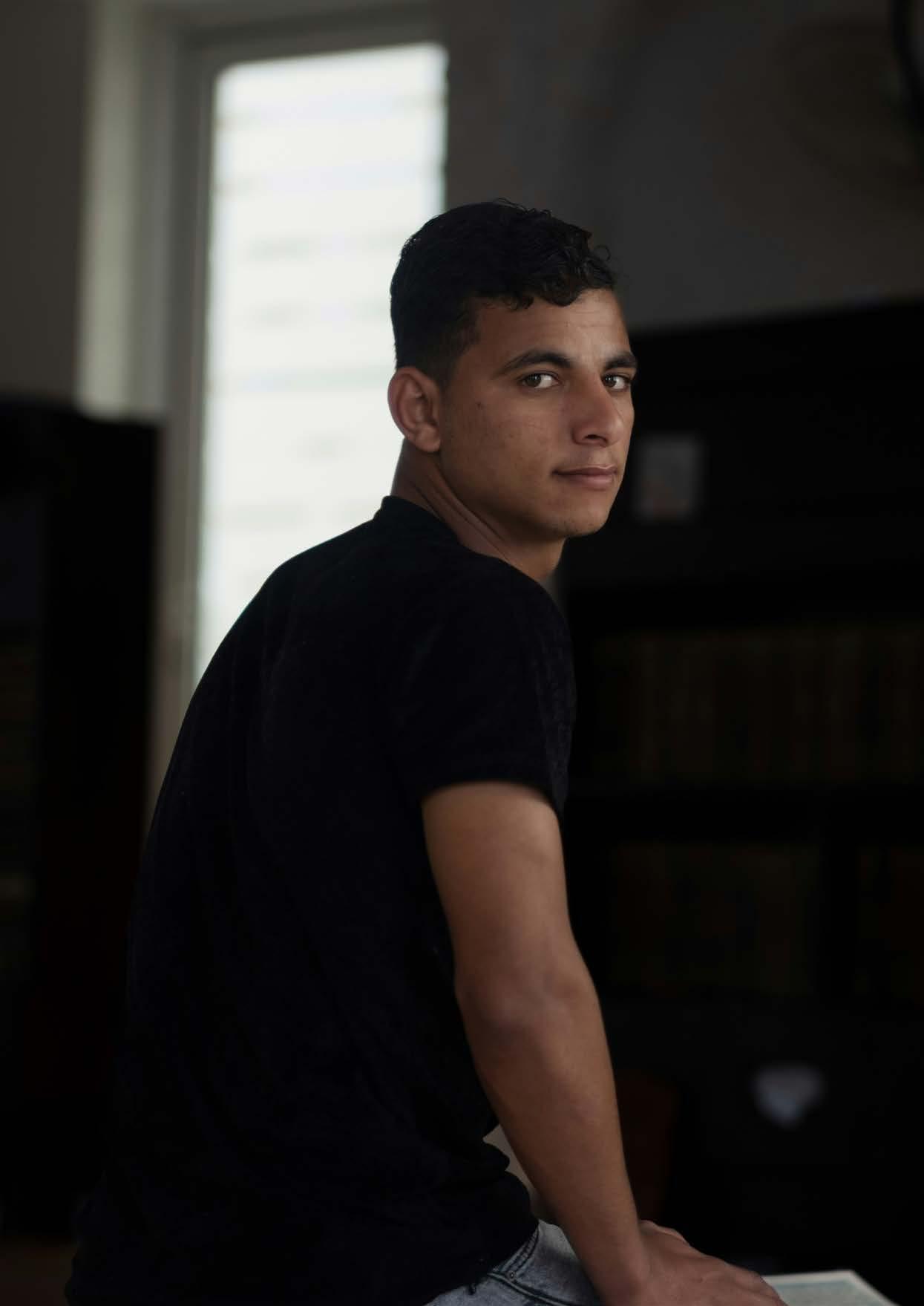BUILDING STRONGER FAMILIES: THE CASE FOR INVESTING
IN CULTURALLY ADAPTED MBCPS
Melody Velasquez-Tan
Dr Glenn Althor
September 2024


Melody Velasquez-Tan
Dr Glenn Althor
September 2024

In multicultural societies like Australia, culturally adapted programs represent the most respectful and effective method for engaging diverse communities within Men’s Behaviour Change Programs (MBCP). Relationships Australia NSW (RANSW), in partnership with Settlement Services International (SSI) and with funding support from the NSW Government, implemented such a program from 2018 to 2024: Building Stronger Families (BSF). This joint initiative demonstrated the crucial role that cultural adaptation plays in fostering participation, engagement, and ultimately success in MBCPs for culturally diverse groups.
The BSF program highlighted the importance of aligning MBCPs with the specific cultural values, backgrounds, language and lived experiences of participants. By doing so, the program successfully bridged the gap between participants’ cultural perspectives and the broader societal norms of Australia. This approach ensured that the program engaged communities and communicated in a way that was culturally relevant and meaningful for the men involved by acknowledging the unique challenges they face living across cultures.
Mainstream MBCPs can leave culturally diverse participants feeling overlooked, invalidated, or unsupported due to the lack of representation and cultural sensitivity. Through the inclusion of facilitators who share similar cultural backgrounds
and experiences, BSF demonstrated how culturally adapted programs can foster a sense of representation, validation, and inclusivity. The enhanced cultural safety achieved through sound co-design processes with community not only increased participant engagement but also made it possible for men to connect more deeply with the program’s messaging and challenging content, as they saw their own experiences reflected within the content and delivery of the program.
Cultural adaptation plays a critical role in addressing complex cross-cultural divides, that often hinder effective engagement in mainstream MBCP programs. With BSF, we successfully supported participants in understanding and navigating the expectations of broader Australian society, particularly in relation to behaviours, relationships, family dynamics, and gender norms. By acknowledging their cultural differences and similarities, our program helped men to reconcile their own cultural perspectives with the legal, social, and familial expectations that exist in Australia, which fosters self-reflection and personal growth.
Participants in culturally-adapted programs are more responsive to messaging that resonates with their specific cultural and language context, and personal lived experiences. This responsiveness underscores the necessity of culturally adapting MBCPs, and significantly contributes to ensuring
diverse participants have equitable access and engagement opportunities for programs. Programs like BSF not only increase accessibility for diverse communities but also ensure that these programs are more effective in addressing the unique challenges faced by multicultural communities.
Furthermore, BSF was designed to be traumainformed. We acknowledged the potential traumas in participant’s lived experiences and adapted our approach to ensure that participants could reflect on their actions informed by their culture. This involved introducing participants to Australian cultural norms and societal expectations, while also allowing them to consider how these might differ from their own cultural practices. By providing this comparative framework, our program enabled men to critically assess the appropriateness of their actions within their own cultural backgrounds and broader Australian society.
A key feature of BSF was the valuable partnership with SSI as a culturally representative organisation. Through their work with communities, such organisations hold insider status and influence within their communities and play a vital role in fostering both participant and community engagement. Their presence not only lent credibility to the program but also created important inroads for building trust and rapport with participants. This collaboration also facilitated capacity-building
opportunities, including knowledge sharing, networking, and resource exchange between mainstream service providers and culturally specific organisations.
Further, the program offered significant capacitybuilding opportunities for individual practitioners from culturally diverse backgrounds in specialised areas of service delivery. For more mainstream staff participating in the delivery of culturally adapted programs, there was the opportunity to enhance their skills, deepen their understanding of cultural dynamics, and strengthen their professional networks.
Despite the significant and meaningful outcomes achieved through the BSF program, it ultimately failed to iterate and scale across the chosen cultural communities. While the program underscored the importance of culturally adapted approaches and offered critical insights into the elements essential for success, its implementation was hampered by foundational challenges rooted in the structures of its funding. The funding model and measures of success and impact specific to culturally adapted MBCPs should be carefully considered in partnership between funders and service delivery partners going forward.

Between 2018 to 2024, RANSW and SSI were funded in partnership, under a NSW Government Domestic and Family Violence (DFV) Innovation Fund, to develop and deliver culturally adapted MBCPs; the first in NSW. The resulting program, BSF, was funded as a three year pilot, and later extended (through yearly extensions) for a further three years. With BSF we aimed to demonstrate the importance, value, and efficacy of culturally adapted MBCPs. Initially undertaking scoping and exploratory work with four communities and delivering in Tamil and Arabic, in its last two years BSF focused on Arabic-speaking communities only.
While BSF demonstrated the importance and necessity of culturally adapted programs and provided key learning opportunities for understanding core elements for success, its implementation suffered from its lack of secure funding post the pilot phase.
The Innovation Fund was awarded before the most recently expanded MBCP accreditation process. As a result, the expectations of deliverables grew over time but were not matched by commensurate or secure funding as BSF remained on the Innovation Fund funding levels. The program faced the threat of closure every year for the past three years, which weakened the momentum it had built in its first three years. Our greatest challenge was the difficulty securing and retaining staff, who needed to be both
well trained DFV workers and Arabic-speaking, and who we regularly lost to more secure employment. Referrers also lost confidence of the program’s reliability as an ongoing service. Ultimately, this led to RANSW and SSI making the difficult decision to cease operations when we were offered a further year of insufficient funding for FY25, and to instead reflect on our experience and recommendations before seeking more sustainable funding.
To close this phase of the work, we undertook a research study, involving surveys and interviews with stakeholders, sector leaders and service delivery participants, in order to ascertain how and in what way culturally adapted MBCPs play a role in addressing men’s use of violence. This resulted in production of two documents, one being a more detailed evaluation of the approach and service delivery successes and improvements for the purposes of continuous improvement by the service partners.
In this second document, we offer key learnings and recommendations from our experiences to the sector, policy makers, funders and other stakeholders in the hopes that this vitally important DFV intervention will be supported with the resources it needs to meaningfully and positively change the lives of culturally diverse women and their children living with the pain of family violence.
+ Culturally adapting MBCPs is essential for engaging diverse communities effectively. This adaptation bridges the gap between participants’ cultural backgrounds and broader societal norms by aligning the program with participants’ values and contexts.
+ Culturally adapted MBCPs ensure the program communicates in a way that acknowledges men within the context of their cultures.
+ Mainstream MBCPs often leave culturally diverse participants feeling unseen, invalidated, and unsupported. Culturally adapted programs foster full engagement by reflecting participants’ experiences through culturally representative facilitators.
+ Culturally adapted programs help address crosscultural divides and enhance understanding between cultures.
+ These programs aid men in bridging the gap between their cultural perspectives and broader Australian societal expectations regarding behaviour, relationships, family structures, and gender norms.
+ Participants respond more positively to messaging that resonates with their own cultural context, lived experiences and delivered in their language.
+ Culturally adapted MBCPs are crucial for making these programs accessible and equitable for diverse communities.
+ These programs take into account participants’ cultural backgrounds, unique lived experiences and migration journeys, in a trauma-informed manner.
+ Culturally adapted MBCPs enable men to reflect on the appropriateness of their actions across different contexts by introducing Australian legal frameworks, cultural norms, and societal expectations in a culturally sensitive manner.
+ Culturally adapted programs cater to participants’ particular backgrounds, motivations, worldviews, and lived experiences.
+ These programs leverage the insider status and influence of cultural organisations to foster participant and community engagement with MBCPs.
+ These programs offer valuable capacity-building opportunities, such as knowledge sharing, networking, and resource exchange between mainstream and culturally specific support organisations.
+ Culturally adapted MBCPs also provide capacitybuilding opportunities for individual practitioners from culturally diverse backgrounds and mainstream, practitioners also by sharing their knowledge and insights.
+ Involvement of culturally specific support organisations enhance the credibility of services, while also strengthening networking potential and relationship-building opportunities for both services and practitioners.

+ Front-loading resources into the early implementation phase was vital to the success of the project in two ways: Firstly, broad and sustained community and service sector engagement and consultation to establish awareness and trust in the project was time consuming and a crucial element to effective co-design and subsequent delivery. It underpinned the legitimacy of the project as well as the organisations involved. Secondly, culturally adapted MBCPs require significant investment in cultural adaptation processes, competence training, MBCP-specific training, and training focused on group facilitation and curriculum delivery. It is recommended that this foundational stage is well planned and resourced at the outset of the program to ensure effective and smooth implementation.
+ Culturally-adapted MBCPs must be delivered inlanguage but also in-culture. That is, translations must be native to include cultural nuances, and facilitators should be natively-fluent in language and be from culture. To foster engagement, participants need to feel represented within the program.
+ The important inclusion of partners and expartners in MBCPs also needs to be culturally nuanced.
+ Effective communication with participants requires sound strategies. These include cultural humility, a sense of connection with clients as individuals and cultural-individuals, connection and sensitivity to client’s cultural contexts in approach, and an in-culture communication style. Cultural competence and awareness on the part of facilitators or, for example, intake staff or others playing a part in service delivery who are not from the culture, needs to be made an integral part of the program.
+ Partnerships between service providers are critical to participant recruitment and engagement. Program outcomes should include building collaborative networks amongst providers, such as organisations that provide DFV-related services alongside organisations that service culturally diverse communities and recognise that this requires a time commitment.
+ Effective and sustainable resource sharing practices between partner organisations to include shared funding and skills.. exchange, as well as inter-organisational hiring.
+ Integrate intersectional considerations and lived experiences of community stakeholders (and even participants) into program’s structure and delivery for true equitability in design and accessibility of the program for the target group/s.
+ Ongoing continuous model testing, review, evaluation and feedback loops involving stakeholders and even community members is necessary to ensure the relevance and health of the program for its target community.
+ Creating some measure of a wrap-around approach to the BSF program that can be a composite of the casework component, or that which comprises effective referrals and links to coordinated services can have great benefits and builds on the relevance of the BSF program.
+ More scope for casework, more robust casework, and more one-on-one time with participants outside of main groupwork delivery allows for the groupwork and program component to better meet its delivery objectives.
+ A slower pace, and consideration of having more sessions with less intensive program
and content coverage per session instead can, in some cases, be warranted. It can be important to exercise flexibility with timeframes, time, space, location, and mode of delivery. Concession should be given around men gathering and socialising around and within the program session’s scope, acknowledging this behaviour as a socio-cultural trait could be a catalyst for engagement with BSF.
+ Visual material such as illustrated handouts and short animations or clips were found to be more conducive and resonant to the target group’s learning and cognition and could garner better participant engagement than more instructive and textual mediums.
+ It is recognised that culturally adapted programs need to be place-based for a number of reasons. Operating in the local community provides credibility and also removes the barrier that travel could create, given there could be issues with confidence in navigating transport and cost to different areas. That said, services also have to be mindful regarding privacy when small communities are referred to such programs. This tension has to be actively and sensitively managed.
+ Programs need to provide whole of family safety support, with parallel services for partners, ex-partners and their children.
+ Programs for culturally adapted MBCPs will likely involve more case work, community information sessions and more community development activities, which needs to be reflected in service outcomes.
+ Similarly, the crucial early stages of community and service sector engagement, and the iterative process of co-design, should be reflected in timelines and resource allocation.
+ Care needs to be taken with the potential to foster erroneous conclusions about different cultural groups being more vulnerable to DFV. RANSW and SSI have generally talked about our “culturally adapted programs” rather than Arabic-speaking groups for example.
+ All MBCPs require investment in research to demonstrate effectiveness and long-term impact.

In conclusion, despite the fact that BSF has now concluded in its current form as an innovation project, BSF remains a powerful example of the importance of culturally-adapted approaches in MBCPs. While BSF deliverables significantly suffered as a result of the regular service disruptions, this should not be interpreted as evidence that the model itself was flawed or ineffective. Rather, our experiences provided a critical opportunity for understanding how the intervention could function effectively, if adequately funded.
By addressing the cultural, legal, and societal complexities faced by participants, the program fostered engagement, self-reflection, and positive behavioural change. However, its ending highlights a key lesson: without adequate, sustained funding and support, even the most promising initiatives are at risk. The program’s emphasis on inclusivity, representation, and capacity-building not only addressed the needs of diverse communities, but also aimed to strengthen the broader service delivery landscape. BSF demonstrates that while cultural adaptation is essential for equitable and effective MBCPs, long-term success depends on stable funding and structural support to ensure lasting impact for men from all backgrounds.
